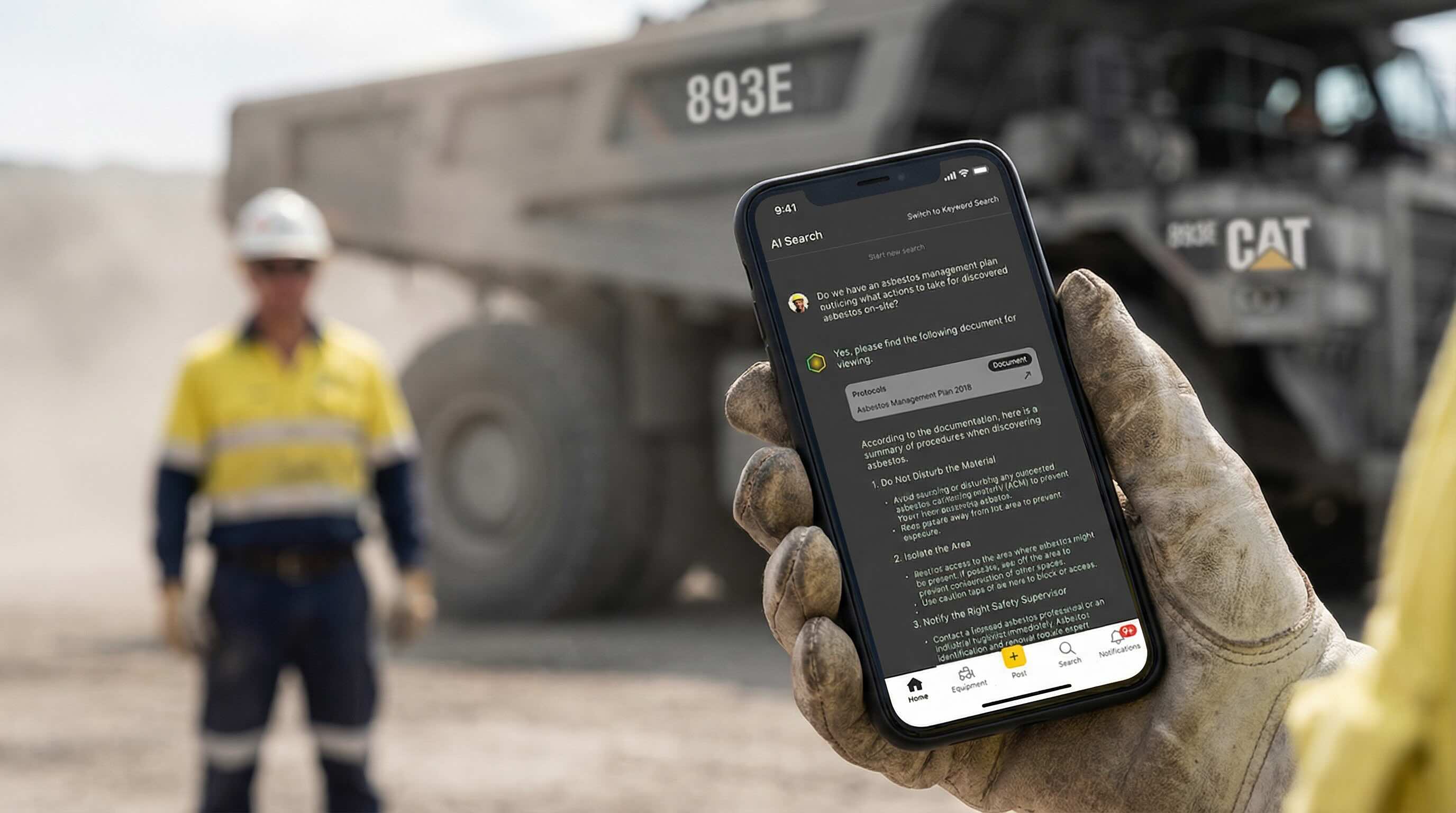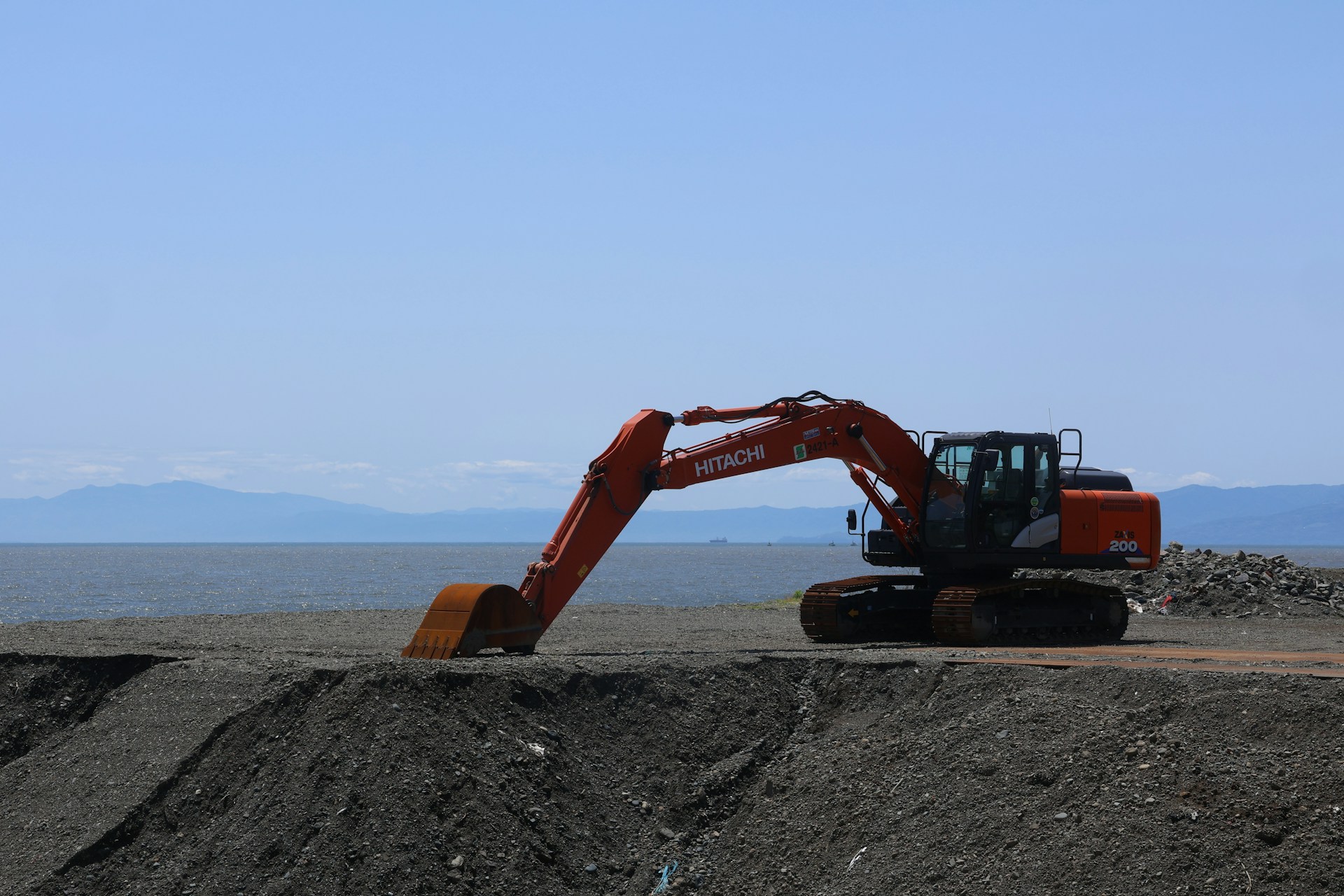A learning network for operators makes it easier to share fixes, machine tips, and safety steps—so new hires learn faster and crews work smarter.
New equipment operators bring energy and a willingness to learn, but those first weeks can feel like a lot to handle. They are asked to run machines they have not seen before and catch up with coworkers who know the ropes. With schedules turning fast and not much room for error, it is easy to get overwhelmed. Many new hires are not sure where to turn when something unusual comes up.
That is where a learning network for operators makes a difference. These networks connect new hires with the hard-earned knowledge from people who have been on the job for years—stuff like old repairs, machine quirks, and tips that never appear in manuals. With a simple way to ask questions, read through threads, and check field notes, new operators pick up skills faster. They build more confidence, stay safer, and are more likely to become steady members of the team.
Why Starting Out Feels Overwhelming
Every job site has its own pace. Machines might share a logo, but every rig has been through different hands and works a bit differently. New operators must not only learn the basics, but also figure out the quirks. When no one tracks odd fixes or clever workarounds, answers are hard to find. That means a new operator who runs into an odd noise or a sudden alert might be stuck guessing, with everyone else busy moving on.
Too many field solutions go untracked, buried in someone’s page of notes or lost after a shift change. If a quick repair worked for tough ground last week and did not get logged, someone else will waste time solving it again tomorrow. On tight schedules, there is less time to share lessons in person. Newcomers often have to figure things out the slow way.
With a learning network for operators, problems and fixes get logged for the entire crew. Instead of going from person to person, someone can search for a similar question or go straight to the answer by model or machine type. This quick support makes that rough first stretch easier, and it starts good habits for sharing know-how from day one.
One useful detail found on Torqn’s platform is the ability to organize and search posts by make, model, or type of issue, so new hires can find what they need without extra digging.
How Learning Networks Support Confidence and Safety
When operators share a central bank of experiences, the whole crew gets safer. Anyone can read up on how past crews handled sketchy lifts or what to look for when a sensor is acting up. Real-world safety lessons and examples stick far better than a long list of printed rules. Forums where people share exactly what happened on-site make the best safety tips stand out—and last.
Having everything tagged by brand or topic makes it quick to use. Nobody wants advice about a loader’s hydraulic ram hidden under posts about generator repairs. Clear tags let anyone, new or old, get fast answers to match the machine in front of them.
Safety examples come straight from the field. Maybe one person posts that they always check the hitch pin on a certain CAT hauler after one rolled loose last year. If that tip sits on the top thread for new hires, they walk in better prepared. These shared lessons do not replace regular training, but they help every operator get more from those hours.
Torqn’s knowledge network platform supports topic tags and attachments for photos or checklists, turning practical advice into searchable notes for both new and experienced crew members.
Equipment Familiarity Built Through Community Feedback
Earning your certification is just the start. Operating a real machine in a muddy yard or rocky lot is different from anything you learn from a manual. Online forums turn what operators see and fix every day into lessons for everyone. It is direct, machine-specific, and always getting updated.
Forums organized by names like Komatsu, CAT, or John Deere let crews get to the point. One operator reports an odd dip in oil pressure—others chime in with similar experiences, photos, and what solved it. When these records can be sorted by machine model, new techs never start from scratch.
This collection of shared experience lets new operators build a real sense of each piece of equipment. Instead of guessing, they learn details that manuals skip—like how a track loader handles differently in rain or which sensor quirks are nothing to sweat. What gets shared in the dirt becomes a shortcut for the next person in line.
Why Forums and Peer Networks Matter During the Busy Season
Come fall, the work picks up. Crews hustle to wrap up drainage work, finish grading, or winterize gear before colder mornings slow them down. In these moments, decisions need to be fast and mistakes have a bigger cost. If a new hire or even a whole shift misses a known fix, the schedule can take a real hit.
A learning network for operators helps keep everyone on the same page. Smaller crews—out on a rural patch or working overnight—do not have the same access to deep bench experience. When they can search past threads for the right field fix, it saves guesswork and cuts downtime.
Night shifts see another advantage. While one group sleeps and another pushes through until morning, a shared log of field notes and daily problems keeps everyone in sync. For new hires and veterans alike, that means more time staying on task and less time sorting out yesterday’s headaches.
Built to Last: Knowledge that Carries from One Crew to the Next
What makes a learning network for operators powerful is that it grows with the crew. Every new field story, tip, or warning gets stored and passed to someone who needs it down the road. The benefits build up:
- Onboarding happens faster
- Repeat mistakes drop off
- Access to machine quirks and solutions is easier
- Teams transition smoothly through the busy season or staff changes
Fleet work never stands still. Machines rotate, people switch jobs, and seasonal demands shift pace every month. With each lesson logged and made findable for everyone, crews work smarter and new hires stick around longer, building a memory and a margin for every job ahead.
At Torqn, we believe experience shouldn’t be lost when one crew clocks out and another clocks in. A connected platform makes it easier to log fixes, share machine quirks, and flag safety notes while they’re still fresh. When your team needs a better way to swap stories and solve problems across shifts, a well-structured learning network for operators gives them that daily head start. We help surface the answers crews need so no one has to keep guessing. Let’s talk about what that can look like for your team.









